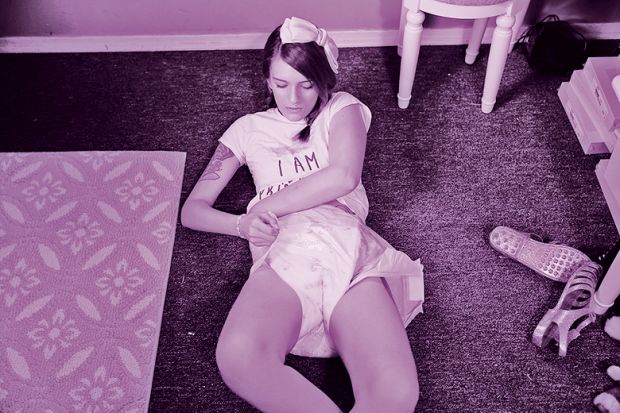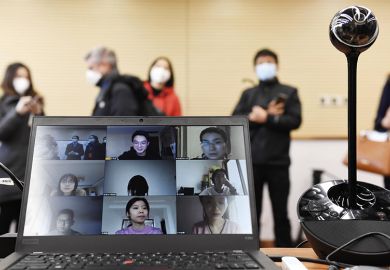On a summer evening in 1972, the much-loved historian C.E. Stevens – “Tom Brown”, as Tolkien reputedly nicknamed him – was regaling the common room with the tale of his amorous undergraduate adventure in the 1920s, when paternalism was a virtue and intrusiveness a duty.
“Is she the kind of young person,” he recalled the dean’s asking, “whom you would take home to your mother?”
The implied reproof was part of a larger story. In 1970, the reduction of the age of majority in the UK had turned freshmen into official adults. Dons, former custodians of their pupils’ morals, suddenly became landlords uncertain of their rights and duties towards the young citizens they housed. College authorities responded by abandoning serious commitment to pastoral care and confiding in students’ fictive maturity. The consequent ill effects have been getting worse ever since.
Newly arrived undergraduates – if my perceptions are valid – are typically too immature to be trusted with the conduct of their own lives, much less with the wider responsibilities we thrust upon them. One of the first self-revelations I got as a young teacher was of my own recent naivety, as I noticed how childish freshmen seemed. I must have seemed similarly infantile to my elders at the same stage.
I suspect that all of us who work in universities notice how rapidly many students grow up between matriculation and the end of the second year. We may congratulate ourselves – or, more properly, them – on progressing so fast, but part of the consequence is realisation that when they first join us they are adult, if at all, in only a limited sense.
“They get younger every year,” according to the cliché with which old professors expiate ageing. It would be fairer to say that freshmen get more immature. As life lengthens, so does each phase of life. On average, Westerners now spend longer in the parental nest and marry later than in the previous two or three generations. They postpone financial independence and parenthood.
When youngsters leave school, these typical thresholds of adult life seem correspondingly further off than previously. When they arrive at university they are, on average, less worldly-wise. Fewer of them have lived away from home. They have spent less time with books and therefore lack the vicarious experience that wide reading brings. They have been subjected to less rigorous routines of learning; so they know less and are less prepared to be challenged or surprised. They have been less disciplined, less brutalised, less lied to, less berated, less shamed and less humiliated by parents, priests, teachers and drill sergeants. In other words, they have seen less of life. One of my students recently told me he had never witnessed violence. They have a lot of growing up to do.
Instead of treating them as the children they often still are, we encumber them with fearsome responsibilities – for their own diets, sex lives, manners and, within the law, substance misuse. We menace them with the imminence of a hostile world, formerly unknown to them, in readiness for which – to be equipped for ruthless, potentially beggaring competition – they must study uncongenial, economically exploitable subjects and achieve demanding qualifications.
We make them sign codes and contracts that they often, evidently, do not understand. We give them the civic responsibility of voters and, with varying degrees of sincerity, admit them to roles in the governance of the universities to which they belong. We treat with unbecoming respect their half-baked, childish opinions on the propriety of free speech, the display of politically incorrect imagery, or the tenure of infelicitously outspoken colleagues.
Above all, we heap debt on our young and enfeoff their futures even before they have had a chance to live out youth. We consign them to misery founded on falsehood: that 18-year-olds are typically ready to look after themselves and fit to constrain their elders. Tiny tots enjoy playing doctors and nurses or cops and robbers. In adolescence, however, affected adulthood is no fun. Gaudeamus? No chance, in the solemn, humourless world of “woke” conformity, where silliness is proscribed and irresponsibility is unacceptable. Students’ discontent festers, while their mental health worsens and suicide rates rise. We pile too much on shoulders not yet strong enough to bear it. And – on the pretence that they are grown-ups – we fail to give students enough care.
It is too late to reverse most of what has already gone wrong. To postpone the age of majority, for instance, would be to deprive unconsenting citizens of existing rights. But we can resist calls to drop the threshold from 18 to 16 years old. To reunite learning and laughter would require a makeover of the academic profession; but we can proclaim the truth that education needs entertainment. We can stop encouraging the young in brash arrogance and alert them candidly to the advisability of deferring demands unbacked by the wisdom that years of study and reflection earn. And we can restore a little of the pastoral solicitude Tom Brown Stevens remembered: not in a spirit of prurient or puritanical interference in our students’ lives, but in due concern for their welfare, and the assurance that while – on matters beyond the classroom – they are too old to be told what to do, most of them are still young enough to be guided.
Felipe Fernández-Armesto is William P. Reynolds professor of history at the University of Notre Dame.
后记
Print headline: Offer still a guiding hand




